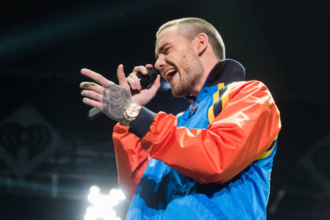The Ministry of Defence is debating deploying British troops to Ukraine to help train its military forces. This action is in line with the continuous UK support for Ukraine in view of its war with Russia.
Why was the Defence Secretary in Kyiv?
John Healey, the Defence Secretary, recently visited Kyiv to discuss ideas for boosting military help to Ukraine in the upcoming year. Healey said that one possibility under review is sending British troops to Ukraine for training purposes, but he did not offer further specifics regarding these plans during his visit.
“We are preparing Ukrainian troops in the UK,” Healey remarked. “A small team of British Army medics also provide training within Ukraine. We are always trying to find ways to help our friends in their struggle.”
Currently, mainly to prevent direct conflict with Russia, the UK and other NATO nations have resisted deploying troops straight to Ukraine or imposing a no-fly zone. Individual NATO nations have, however, continued to provide Ukraine with necessary military hardware and weapons.
What more military support the UK is providing Ukraine?
As part of his tour, Healey promised an extra £225 million in military help, including air defenses for Ukraine, more drones, and artillery shells. Healey underlined that, given Ukraine’s continuous confrontation with Russia, this money will help guarantee that the country is in the strongest possible position.
“We are dedicated to providing Ukraine with the tools it requires to defend itself,” Healey added. “That implies more sanctions against Russia, weaponry, and training. We aim to position Ukraine in the best shape for the following year.
Is the UK debating deploying troops to Ukraine?
Defence sources suggest that one alternative is the possible deployment of British soldiers to Ukraine to support training initiatives. Healey said the specifics would remain private for security concerns, even if he did not specify specific plans.
Healey said, implying the delicate nature of the negotiations, “The detail of our joint Ukrainian plan will have to remain, let’s say, unavailable to [Russian] President [Vladimir].”
How are friends of NATO supporting Ukraine?
The world community, including the UK and its allies, has been striving to increase Ukraine’s military capacity. Although US President-elect Donald Trump promised to try to end the war, talks on how Western countries might offer long-term security assurances for Ukraine should future peace initiatives develop.
Healey noted that his primary duty was to keep helping Ukraine’s efforts in the war against Russia, so he would be closely observing to see President Trump’s intentions. “We have to do everything we can while Ukraine is still fighting this war.”
What Future Coordination Plans Call for in 2025?
A pivotal conference scheduled for Brussels in the next few days will feature UK Foreign Secretary David Lammy, Ukrainian President Volodymyr Zelensky, and EU nations and NATO leaders. This conference aims to discuss more help for Ukraine as it prepares for the demands of 2025.
Emphasizing the need for ongoing European support, Foreign Secretary Lammy reflected on Healey’s opinions: “Allies right across Europe must step up their support for Ukraine, particularly in terms of training their armed forces, providing the necessary financial assistance, and ensuring that we have innovative solutions for long-term support.”
How did the Prime Minister approach Ukraine with Trump?
A recent phone call between Prime Minister Sir Keir Starmer and US President-elect Donald Trump focused on the state of affairs in Ukraine. The Prime Minister underlined the need to maintain unity among international friends to resist Russian aggression and guarantee that Ukraine stays in a strong position to meet the challenges ahead.”A Downing Street spokesman said the Prime Minister underlined the significance of allies standing united with Ukraine in the face of Russian aggression and guaranteeing Ukraine is in the most substantial possible posture.
The UK is still dedicated to providing Ukraine vital military support—including the prospect of deploying British troops for training—as part of a larger strategy to help Ukraine gain victory and maintain its sovereignty as the battle progresses.
UK Diplomats Hold Talks with Syrian Rebel Group Leader Following Assad’s Ouster








